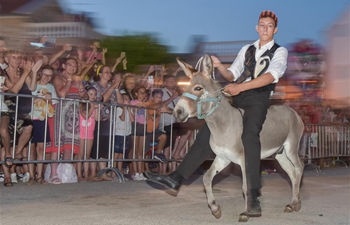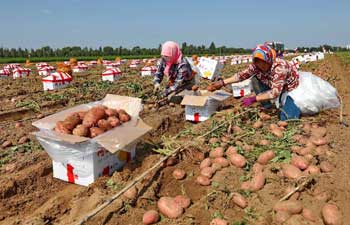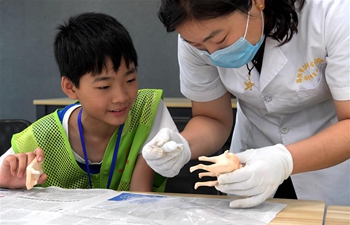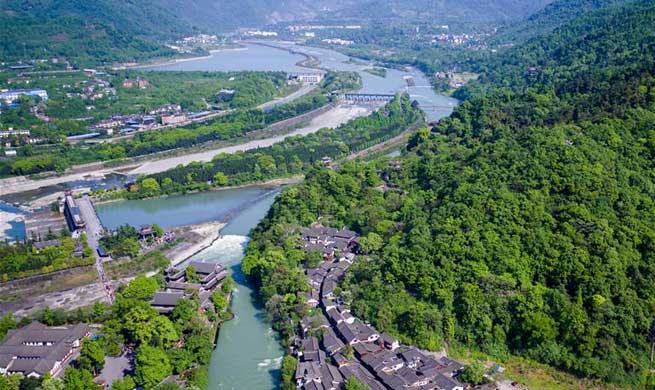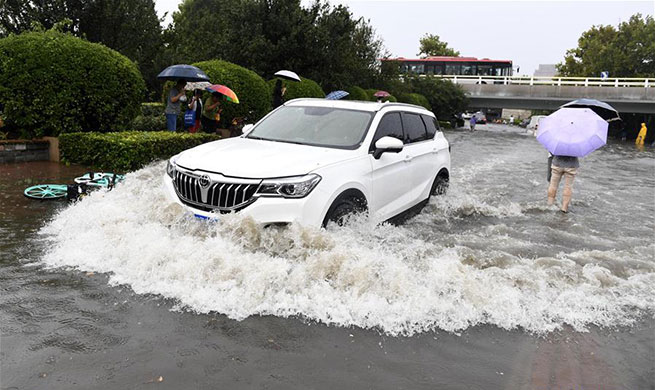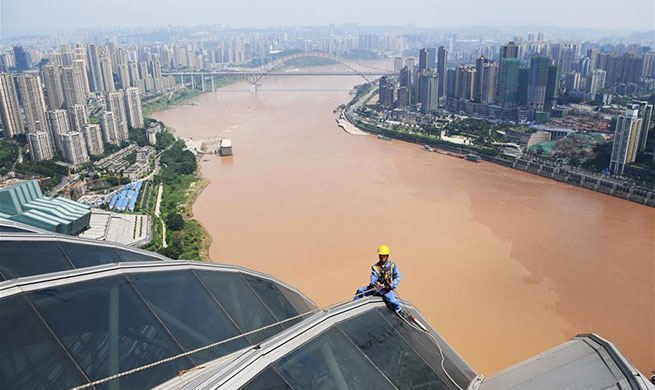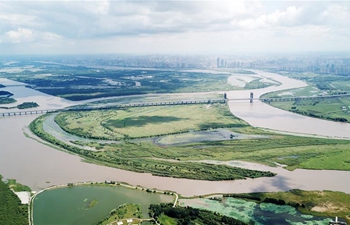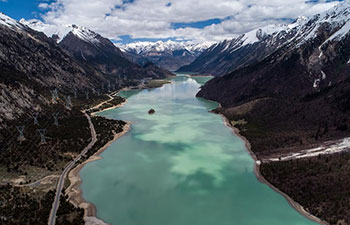UNITED NATIONS, Aug. 2 (Xinhua) -- Poland, which on Thursday took over the presidency of the United Nations Security Council from Peru and became the council's president for August, has emphasized the importance of international humanitarian law during its council tenure.
A high-level briefing on international humanitarian law on Aug. 13, a day after the 70th anniversary of the signing of the 1949 Geneva Conventions, "will focus on international humanitarian law in the context of promoting and strengthening the rule of law" in the maintenance of international peace and security, Joanna Wronecka, Polish UN ambassador, told reporters at the UN headquarters in New York.
"A presidential statement is possible," she added.
The month got off to a busy start. A discussion was held Thursday morning under "any other matters" on recent missile launches by the Democratic People's Republic of Korea (DPRK).
Late in the month, Germany is expected to provide council members with the quarterly briefing in consultations on the work of the 1718 DPRK Sanctions Committee in its capacity as the committee's chair, she added.
In addition, Poland will host a debate on challenges in the Middle East during the month, including human rights and humanitarian issues in the region, said Wronecka.
The Council will hold an open debate on the annual report of the secretary-general on children and armed conflict early in the month. Special representative for children and armed conflict Virginia Gamba will present the annual report.
Undersecretary-General Vladimir Voronkov, head of the UN Office of Counter-Terrorism (OCT), is expected to brief on the secretary-general's strategic-level report on the threat posed by the Islamic State in Iraq and the Levant (ISIL or Da'esh), said the Polish ambassador.
The Council will receive the monthly briefings on the political process, the humanitarian situation, and the use of chemical weapons in Syria, she said, adding that special envoy for Syria Geir Pedersen may brief on the political process, while Undersecretary-General for Humanitarian Affairs Mark Lowcock is expected to brief on the humanitarian situation.
The monthly meeting on the Middle East (Israel/Palestine) will likely consist of a briefing, followed by consultations. It is anticipated that Nickolay Mladenov, the secretary-general's special coordinator for the Middle East peace process, will brief.
There will also be an Arria-formula this month on the theme of advancing the safety and security of religious minorities in armed conflict, said Wronecka.
Non-proliferation and Ukraine are in the footnotes of the program. "Meetings on these and other issues could be scheduled during the month depending on developments," she said.
Also this month, she said, the 15-member Council will decide whether to renew the mandate of the United Nations Interim Force in Lebanon (UNIFIL) and the sanctions regime imposed by Resolution 2374 (2017) concerning Mali, both of which will expire on Aug. 31.
Responding to questions, she said the council is united on the DPRK, emphasizing that that "positive dimension" must be maintained.
Asked about a possible Security Council visiting mission to Israel and the occupied Palestinian territories, she said such a visit would require agreement among council members.





